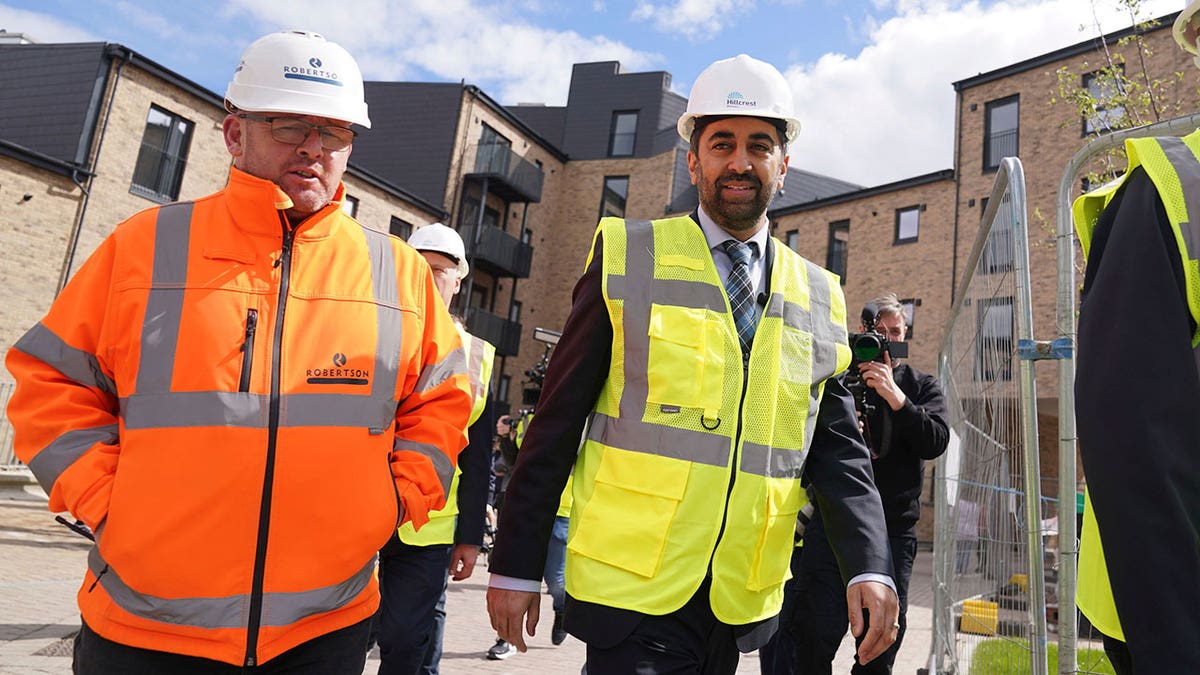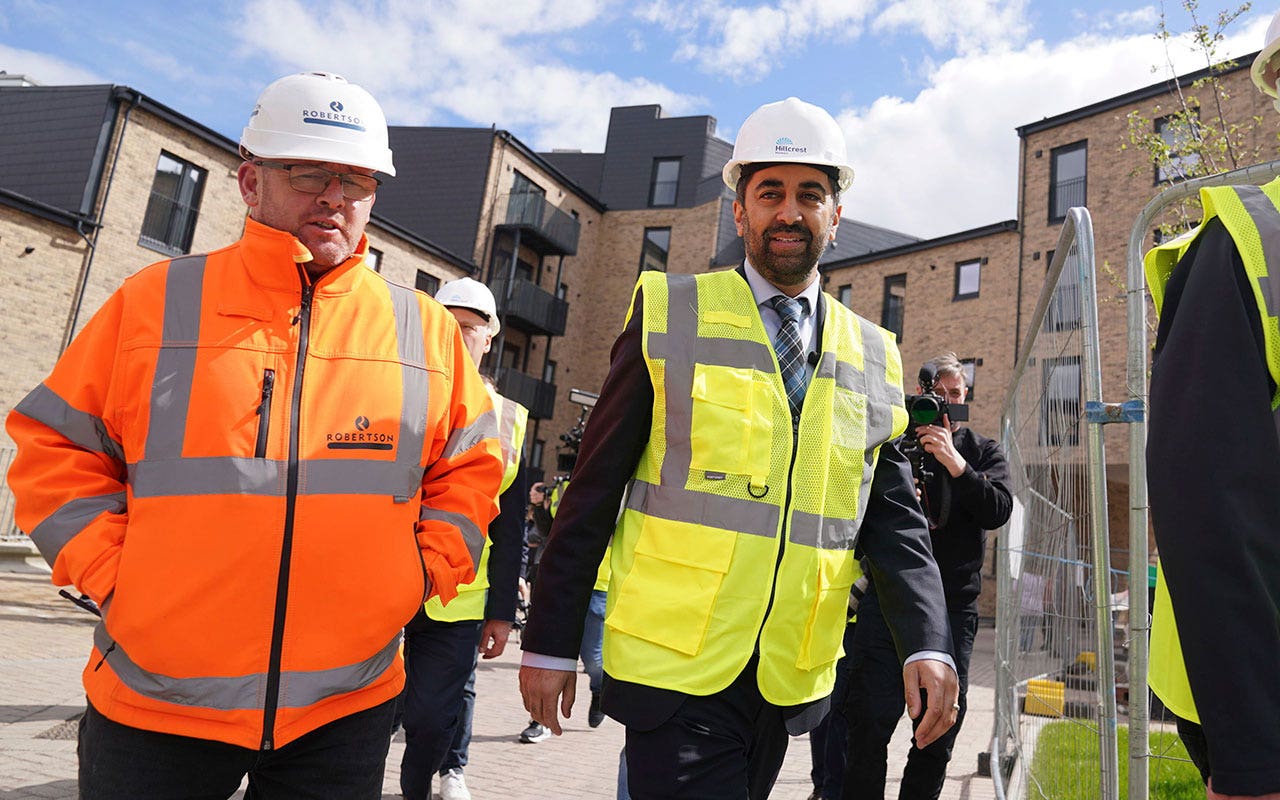- Prime Minister Humza Yousaf has refused to resign amid growing pressure over his decision to end a three-year power-sharing deal.
- Prime Minister Humza Yousaf said Friday he would “absolutely” oppose the vote of no confidence against him.
- A defeat could trigger a series of events that lead to Yousaf's resignation and a possible snap election in Scotland.
The Scottish leader insisted on Friday he would not resign as he fights for his political survival amid the fallout from his decision to end a three-year power-sharing deal that left him Scottish National Party a minority government.
Pressure on Prime Minister Humza Yousaf has increased sharply since he abandoned a power-sharing deal with the much smaller Greens on Thursday following a row over climate change policies . He is expected to face a vote of no confidence in the Scottish Parliament next week.
“I absolutely intend to fight this vote of no confidence, I have every intention of winning this vote of no confidence,” he said during a hastily arranged trip to Dundee.
SCOTTISH LEADER FACES BATTLE FOR SURVIVAL AFTER ENDING POWER-SHARING AGREEMENT OVER CLIMATE CHANGE SHOCK
Following his decision to abandon the deal with the Greens, the Scottish Conservatives presented a motion of no confidence in Yousaf as first minister.

Scottish Prime Minister Humza Yousaf, center, visits the Hillcrest Homes housing complex in Dundee, Scotland, April 26, 2024. Yousaf said on Friday he will not resign as he fights for his political survival amid fallout from his decision to end a three-year power-sharing deal that left his Scottish National Party in a minority government. (Andrew Milligan/PA via AP)
The Greens, furious at their ouster from the government, have already said they will vote against Yousaf himself, alongside other main opposition parties including the Conservatives and Labour. Without the support of the Greens, who like the SNP support Scottish independence from the United Kingdom, it is two seats short of obtaining a majority.
A defeat could trigger a series of events that lead to Yousaf's resignation and a possible snap election in Scotland, which is not expected to take place until 2026.
Yousaf, who replaced long-serving leader Nicola Sturgeon in March 2023, is likely to need the vote of a former SNP lawmaker, Ash Regan, to survive. Regan, who left the party last October to become the first lawmaker for a rival pro-independence party, Alba, indicated she would seek a prize from Yousaf in order to support him.
Of the 129 seats in Parliament, the SNP holds 63. Regan's support would give the government at least 64 votes. In the event of a tie, the speaker of the house – the Scottish equivalent of the president – should vote in favor of the status quo.
On Friday, the Scottish Labor Party, which is linked to Britain's main opposition Labor Party, said it wanted to table a vote of no confidence next week. While Alba indicates she will not seek to vote against the government, it appears the no-confidence vote will be less likely to succeed.
If Yousaf lost the vote, government ministers would be required to resign immediately and Parliament in Edinburgh would then have 28 days to see whether it could create a new government with majority support. If this is not possible, early elections would then be called.
CLICK HERE TO GET THE FOX NEWS APP
“It is now a question of when, not if, Humza Yousaf will resign as prime minister,” Scottish Labor leader Anas Sarwar said. “It would be untenable for the SNP to assume that it can impose another unelected first minister on Scotland.”
The SNP, which has dominated Scottish politics since 2007 although it lost the 2014 independence referendum, was rocked by the announcement earlier this month that Sturgeon's husband, Peter Murrell, was accused of embezzlement as part of an investigation into the party's finances.
Although Scotland is part of the United Kingdom, its government has broad powers, including over health and education, as well as limited revenue-raising powers.
Opinion polls show the SNP faces strong opposition from Labor in Scotland in the run-up to the UK general election – the SNP has 43 of the 59 Scottish seats in the UK Parliament. The vote will take place in the coming months.
